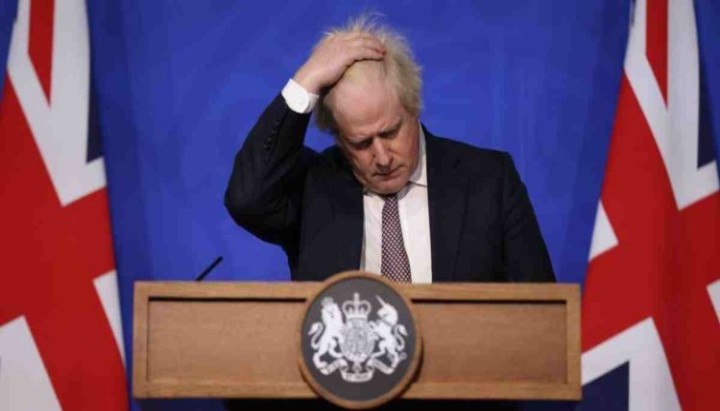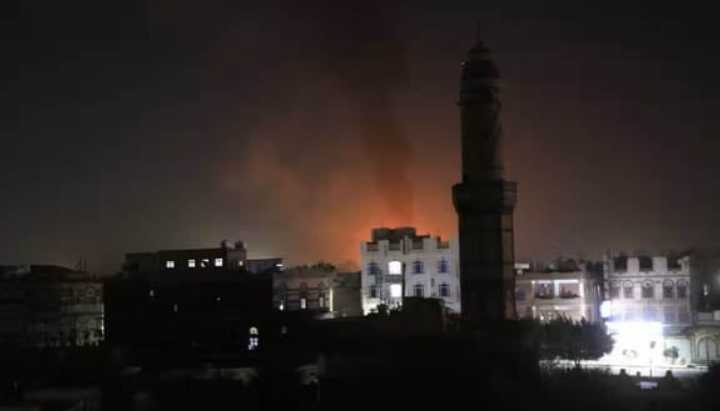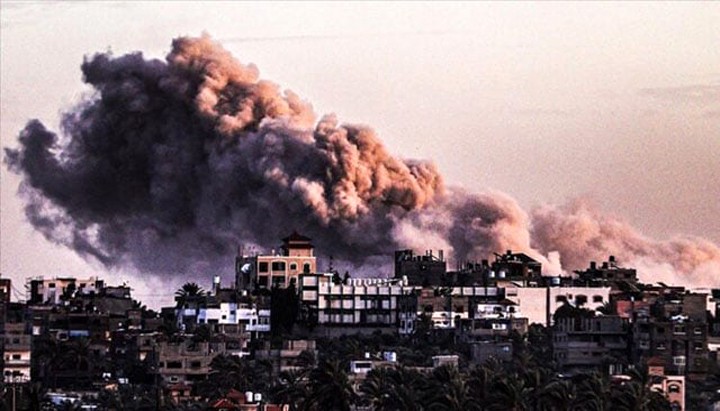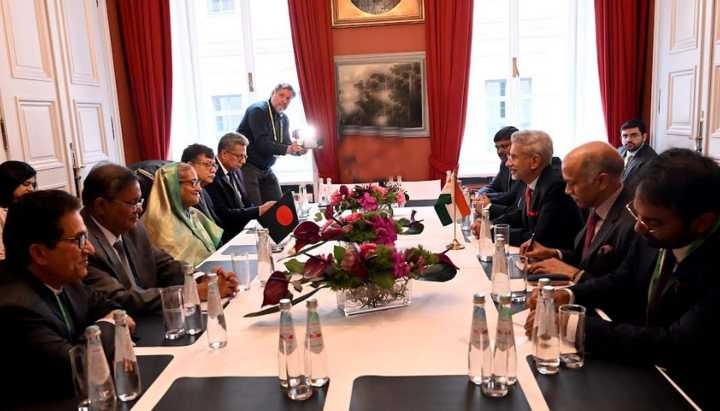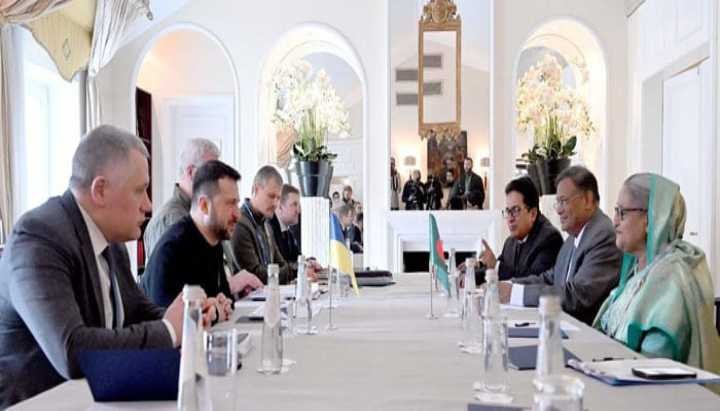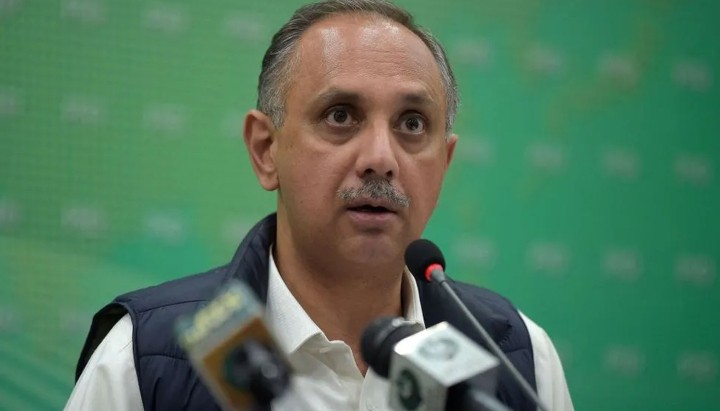Britain's Prime Minister Boris Johnson gestures as he speaks
during a press conference in London, Saturday, Nov. 27, 2021, after cases of the
new COVID-19 variant were confirmed in the UK.
On Saturday, the new potentially more contagious omicron
strain of the coronavirus appeared in several European countries, prompting the
governments around the world to scramble to contain the spread, just days after
being identified in South Africa.
The U.K. on Saturday tightened its rules on mask-wearing and
on testing of international arrivals after finding two cases. New cases were
confirmed Saturday in Germany and Italy, with Belgium, Israel, and Hong Kong
also reporting that the variant has been found in travelers.
In the U.S., Dr. Anthony Fauci, the government’s top
infectious diseases expert, said he would not be surprised if the omicron
variant was already in the United States, too.
“We have not detected it yet, but when you have a virus that
is showing this degree of transmissibility ... it almost invariably is
ultimately going to go essentially all over,” Fauci said on NBC television.
Because of fears that the new variant has the potential to
be more resistant to the protection offered by vaccines, there are growing
concerns around the world that the pandemic and associated lockdown
restrictions will persist for far longer than hoped.
Nearly two years since the start of the pandemic that has
claimed more than 5 million lives around the world, countries are on high
alert. Many have already imposed travel restrictions on flights from southern
Africa as they seek to buy time to assess whether the omicron variant is more
transmissible than the current dominant delta variant.
In Britain, Prime Minister Boris Johnson said it was
necessary to take “targeted and precautionary measures” after two people tested
positive for the new variant in England.
“Right now this is the responsible course of action to slow
down the seeding and the spread of this new variant and to maximize our
defenses,” he told a news conference.
Among the measures announced, Johnson said anyone arriving
in England must take a PCR test for COVID-19 on the second day after their
arrival and self-isolate until they provide a negative test. And if someone
tests positive for the omicron variant, then he said their close contacts will
have to self-isolate for 10 days regardless of their vaccination status —
currently, close contacts are exempt from quarantine rules if they are fully
vaccinated.
He also said mask-wearing in shops and on public transport
will be required and said the independent group of scientists that advises the
British government on the rollout of coronavirus vaccines has been asked to
accelerate the vaccination program. This could involve widening the booster
program to younger age groups, reducing the time period between a second dose
and a booster, and allowing older children to get a second dose.
“From today we’re going to boost the booster campaign,"
he said.
Britain's Department of Health said the two cases found in
the U.K. were linked and involved travel from southern Africa. One of the two
new cases was in the southeastern English town of Brentwood, while the other
was in the central city of Nottingham. The two confirmed cases are
self-isolating with their households while contact tracing and targeted testing
takes place.
The British government also added four more countries —
Angola, Malawi, Mozambique, and Zambia — onto the country's travel red list from
Sunday. Six others — Botswana, Eswatini (formerly Swaziland), Lesotho, Namibia,
South Africa, and Zimbabwe — were added Friday. That means anyone permitted to arrive
from those destinations will have to quarantine.
Many countries have slapped restrictions on various southern
African countries over the past couple of days, including Australia, Brazil,
Canada, the European Union, Iran, Japan, Thailand, and the United States, in
response to warnings over the transmissibility of the new variant. This goes
against the advice of the World Health Organization, which has warned against
any overreaction before the variant was thoroughly studied.
Despite the banning of flights, there are mounting concerns
that the variant has already been widely seeded around the world.
Italy and Germany were the latest to report confirmed cases
of the omicron variant.
An Italian who had traveled to Mozambique on business landed
in Rome on Nov. 11 and returned to his home near Naples. He and five family
members, including two school-age children, have since tested positive, the
Italian news agency LaPresse said. All are isolated in the Naples suburb of
Caserta in good condition with light symptoms.
The variant was confirmed by Sacco hospital in Milan, and
Italy’s National Health Institute said the man had received two doses of the
vaccine. Italy’s health ministry is urging all regions to increase its tracing
of the virus and sequencing to detect cases of the new variant first identified
in South Africa.
In Germany, the Max von Pettenkofer Institute, a
Munich-based microbiology center, said the omicron variant was confirmed in two
travelers who arrived on a flight from South Africa on Nov. 24. The head of the
institute, Oliver Keppler, said that genome sequencing has yet to be completed,
but it is “proven without a doubt that it is this variant,” German news agency
DPA reported.
The Dutch public health institute said the omicron variant
was “probably found in a number of the tested persons” who were isolated after
arriving Friday in Amsterdam on two flights from South Africa. The institute
said in a statement that further sequencing analysis is underway to determine
for sure that it is the new variant. The results were expected Sunday. A total
of 61 people were tested.
Israel said it detected the new strain in a traveler who had
returned from Malawi and was tracing 800 travelers who returned recently from
southern African countries. And Australia said early Sunday its scientists were
working to determine whether two people who tested positive for COVID after
arriving from southern Africa are infected with the omicron variant.
The variant’s swift spread among young people in South
Africa has alarmed health professionals even though there was no immediate
indication whether the variant causes more severe disease.
A number of pharmaceutical firms, including AstraZeneca,
Moderna, Novavax, and Pfizer, said they have plans in place to adapt their
vaccines in light of the emergence of omicron. Pfizer and its partner BioNTech
said they expect to be able to tweak their vaccine in around 100 days.
Professor Andrew Pollard, the director of the Oxford Vaccine
Group, which developed the AstraZeneca vaccine, expressed cautious optimism
that existing vaccines could be effective at preventing the serious disease from
the omicron variant, noting that most of the mutations appear to be in similar
regions as those in other variants.
“At least from a speculative point of view we have some
optimism that the vaccine should still work against a new variant for serious
disease, but really we need to wait several weeks to have that confirmed,"
he told BBC radio.
Some experts said the variant’s emergence illustrated how
rich countries’ hoarding of vaccines threatens to prolong the pandemic.
Fewer than 6% of people in Africa have been fully immunized
against COVID-19, and millions of health workers and vulnerable populations
have yet to receive a single dose. Those conditions can speed up the spread of the
virus, offering more opportunities for it to evolve into a dangerous variant.
“One of the key factors to the emergence of variants may well be
low vaccination rates in parts of the world, and the WHO warning that none of
us is safe until all of us are safe and should be heeded," said Peter
Openshaw, a professor of experimental medicine at Imperial College London.
U.S. Secretary of State Antony Blinken spoke Saturday with
his South African counterpart, Naledi Pandor, and they stressed the importance
of working together to help African nations vaccinate their populations, the
State Department said in a statement. It said Blinken praised South Africa's scientists
for quickly identifying the omicron variant and the government for its
transparency in sharing this information, “which should serve as a model for
the world.”


